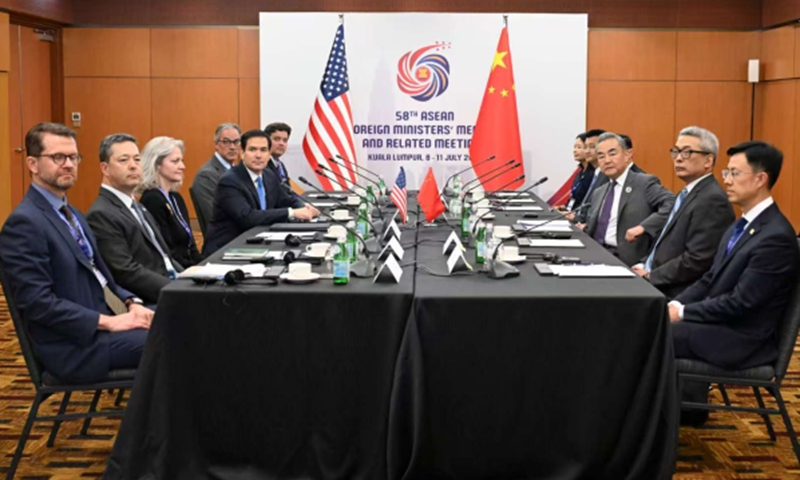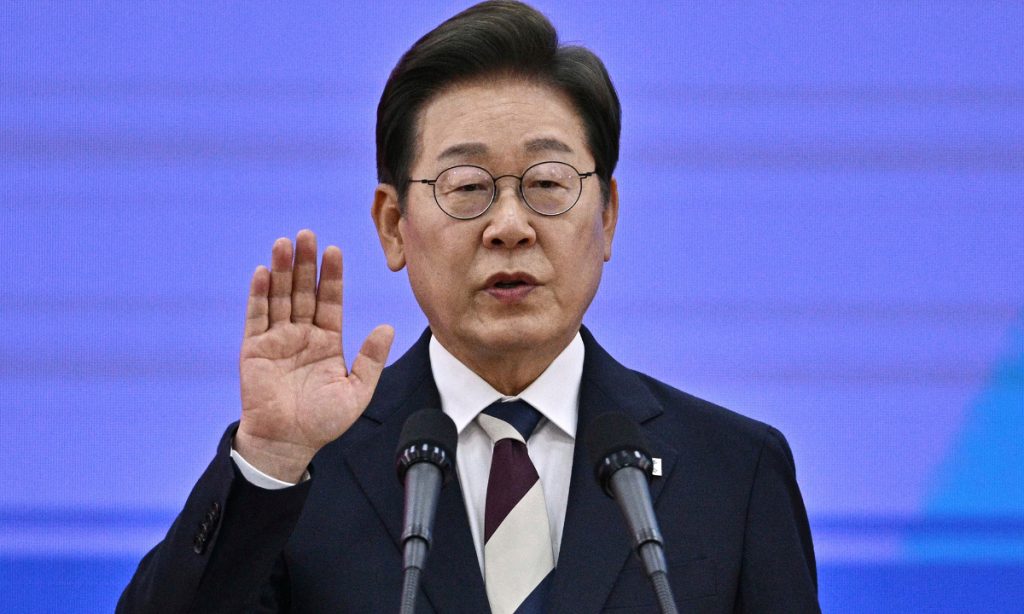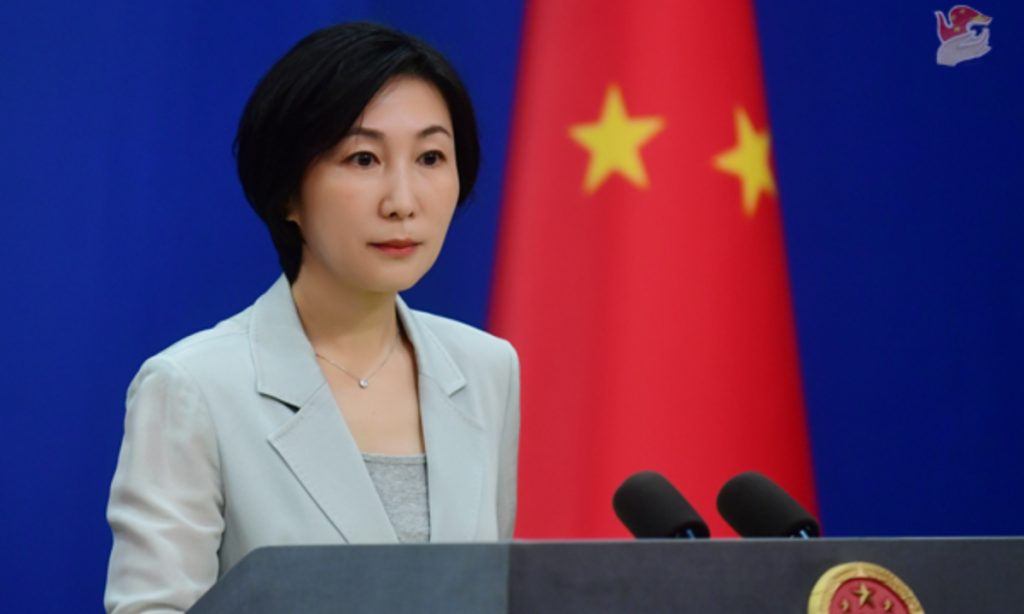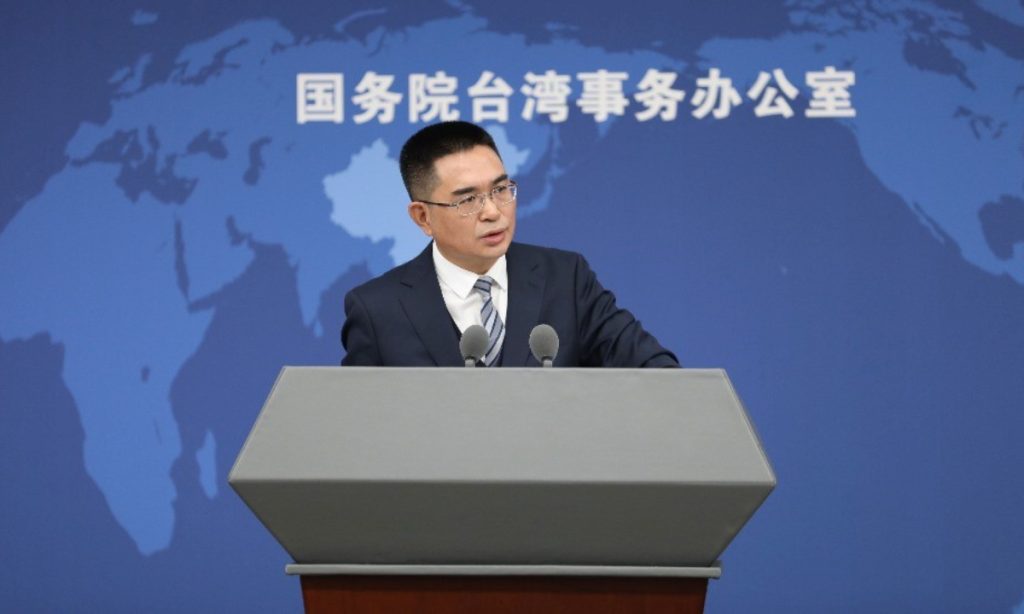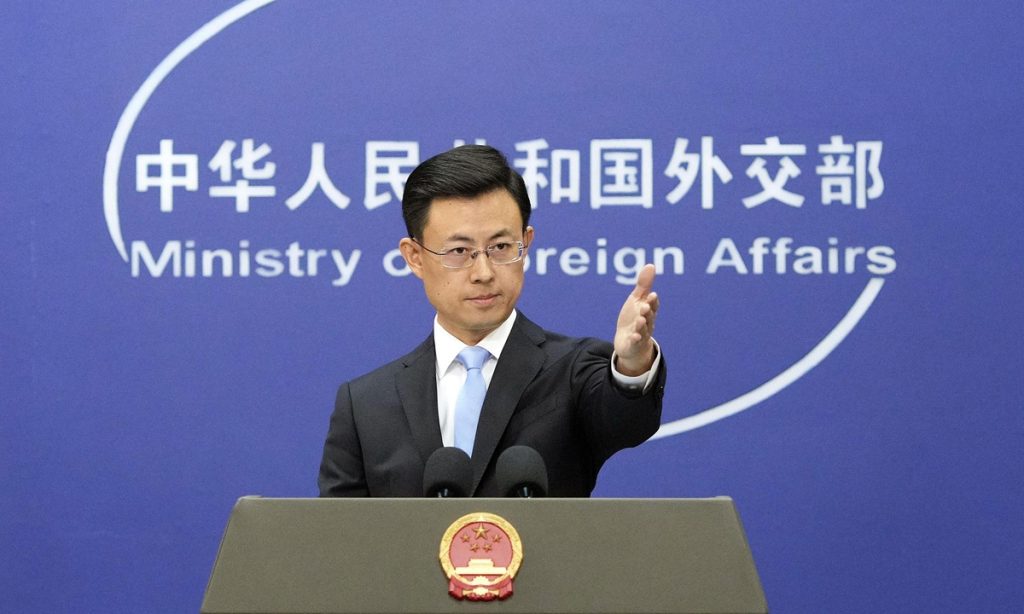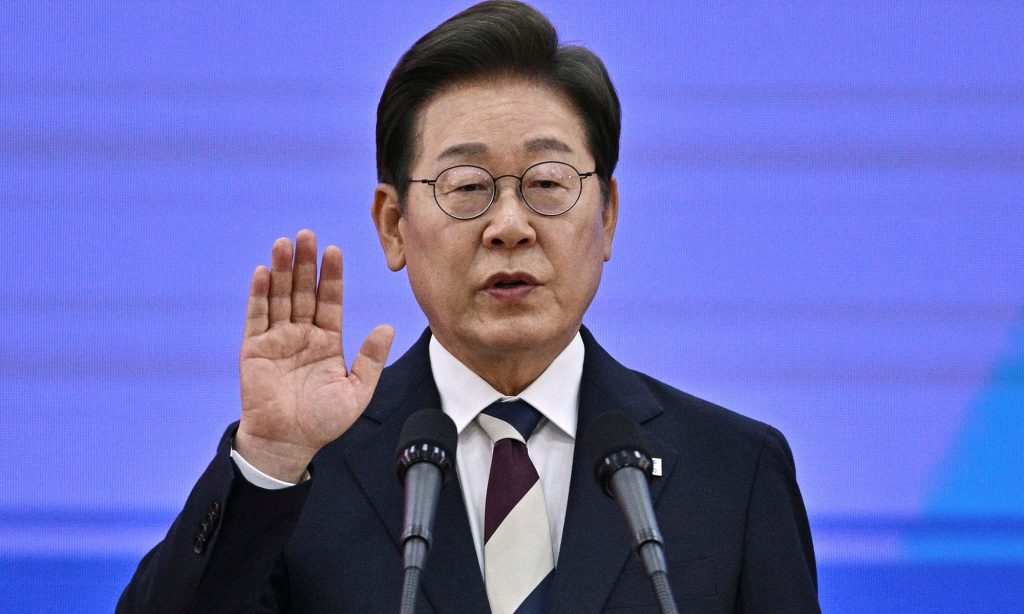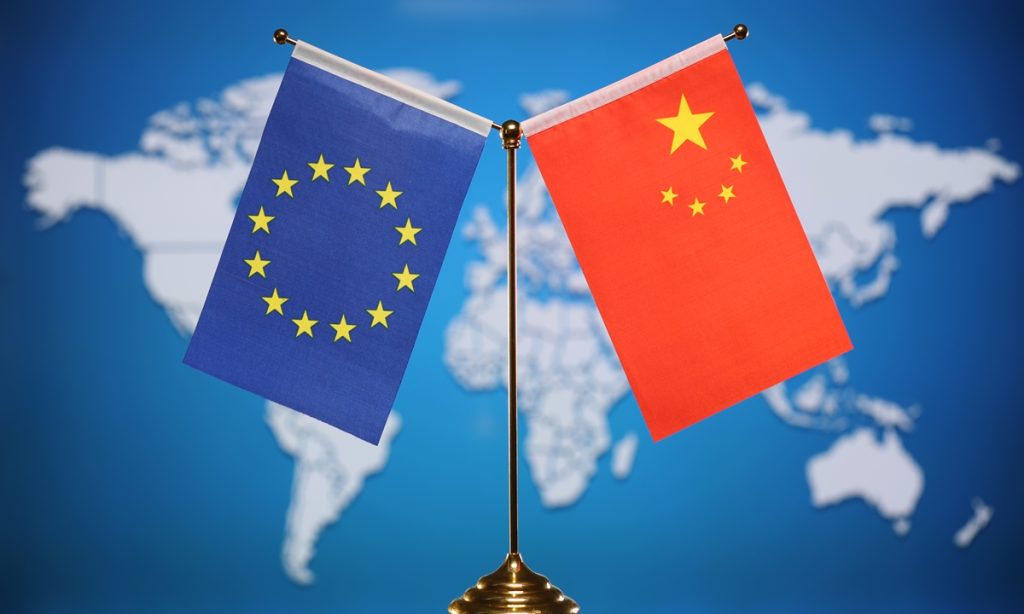GT investigates: Unveiling 8 Taiwan military-industrial enterprises in mainland’s export control list

The Ministry of Commerce announced on Wednesday that it has added 8 entities from China's Taiwan region to the export control list. These companies have deliberately cooperated with the "Taiwan independence" separatist forces, a spokesperson for the ministry said in a statement.
The decision was made to maintain national sovereignty, territorial integrity, as well as peace and stability across the Taiwan Straits, and in accordance with Chinese laws and regulations, according to the statement. The export of dual-use items to these 8 companies will be prohibited, the spokesperson said, stressing that no exporter will be allowed to violate these control measures.
The Global Times noted that the listed enterprises are key military-industrial research and manufacturing institutions in the island of Taiwan, covering various fields such as aviation, missiles, ships, and submarines.
Experts reached by the Global Times on Wednesday said that this move sends a strong political signal that the Chinese mainland will take firm countermeasures against the Lai Ching-te administration's actions aimed at attempting to "seek independence through military buildup," and will also take actions against entities that assist or serve as accomplices in those efforts.
'Military projects involved'
According to the announcement, the eight listed enterprises include Aerospace Industrial Development Corp., GEOSAT Aerospace & Technology Inc., National Chung-Shan Institute of Science & Technology, JC Technology Inc., CSBC Corporation, Taiwan, Jong Shyn Shipbuilding Co., Ltd, Lungteh Shipbuilding Co., Ltd and Gong Wei Co., Ltd. The Global Times found that all these entities are involved in military-industrial projects in the island and are considered "accomplices" in the Lai administration's efforts to "seek foreign support" and "seek independence through military buildup."
Among these, Aerospace Industrial Development Corp. is responsible for developing military aircraft models such as the island of Taiwan's Air Force Ching-Kuo Fighter jets and the Yung-ying (Brave Edge) advanced trainer aircraft. It also participates in the maintenance and upgrade of F-16 fighter jets purchased by the Taiwan military from the US.
With the increasing importance of drones in modern military conflicts, Aerospace Industrial Development Corp. also undertakes the development of the island of Taiwan's military drone projects. It is a key member of the so-called "Taiwan Excellence Drone International Business Opportunities Alliance," which aims to promote the integration and upgrading of Taiwan's drone industry through resource integration, technological cooperation, and industry alliances, thereby enhancing Taiwan's strategic position in the global supply chain for drones.
GEOSAT Aerospace & Technology Inc. primarily focuses on the development of drones. The company's leader, Luo Zhengfang, publicly stated that its goal is to "cut off" the dependency of Taiwan's drone manufacturers on Chinese mainland components and develop 100 percent Taiwan-made military drones to strengthen the island's "asymmetric warfare" capabilities. The company has already delivered naval reconnaissance drones and army micro-drones to the so-called "defense authority" on the island.
National Chung-Shan Institute of Science & Technology is the main force behind Taiwan's military equipment development. The island of Taiwan's currently deployed Tien Kung air defense missile series, the Tien Chien missile series, Hsiung Feng anti-ship missile series, and Thunderbolt 2000 multiple rocket launcher system were all developed by the institute. The institute is also engaged in the development of Taiwan's anti-tank weapon systems and unmanned equipment.
JC Technology Inc. is another Taiwan company focused on the development of drones. The company has participated in a program by the so-called "defense authority" on the island, which aims to produce commercial-grade drones with defense applications, and has developed the Flyingfish suicide drone, which is touted as Taiwan's version of the Switchblade, which is a miniature loitering munition designed by US manufacturer AeroVironment.
CSBC Corporation, Taiwan is a major contractor for the Taiwan navy, involved in the development of Taiwan's amphibious transport dock Yu Shan and the Panshih-class fast combat support ship, as well as the Ching Chiang-class patrol corvette and Cheng Kung-class frigates. Currently, the company is also responsible for the development of Taiwan's self-made submarine, the Hai Kun.
Jong Shyn Shipbuilding Co., Ltd is mainly responsible for the development of Taiwan's coast guard patrol vessels. The largest patrol ships in Taiwan's coast guard, Yilan and Kaohsiung, were developed by this company. It also develops light air defense and anti-submarine escort ships for Taiwan's so-called "defense authority."
Lungteh Shipbuilding Co., Ltd manufactures various types of missile vessels, including Taiwan's Tuo Chiang-class guided-missile corvettes. The company is also involved in the development of unmanned ships for Taiwan's military.
Gong Wei Co., Ltd focuses on the development of specialized military and police equipment, including bulletproof vests, shields, explosion-proof coatings, anti-slash clothing, anti-cutting pants, and tactical gloves. The company was previously exposed for importing bulletproof fiber fabric from East China's Jiangsu Province, printing its logo on it, and then passing it off as "Taiwan-made" to sell to the so-called "defense authority" on the island of Taiwan, making a profit of 67 million New Taiwan dollars ($2.298 million).
Chen Guiqing, a researcher at the Institute of Taiwan Studies Chinese Academy of Social Sciences, told the Global Times on Wednesday that this countermeasure sends a strong political signal: The Chinese mainland will conduct strong countermeasures against the Lai administration's efforts to "seek independence through military buildup" and will take action against entities involved in supporting those efforts. For the specific companies involved, these measures are designed to "strike" those entities within the island of Taiwan that support "seeking independence through military buildup."
'Mainland elements embedded'
The countermeasures are highly targeted, Zheng Jian, a professor at the Taiwan Research Institute of Xiamen University, told the Global Times on Wednesday, adding that Chinese mainland elements are deeply embedded throughout the industrial chains of Taiwan's military manufacturers that have been exposed in recent years.
Zheng noted that the Taiwan regional authorities' claims of "defense self-sufficiency" are largely hollow, as there is hardly any fully self-produced military equipment. Even the companies in the list rely heavily on the Chinese mainland for components, raw materials, and key hardware and software.
The move will undoubtedly disrupt production at these firms, and could deliver a "crippling blow" to areas where the Chinese mainland controls critical materials, Zheng said.
Chen told the Global Times that companies like Gong Wei Co Ltd have long sourced large quantities of bulletproof fibers and related materials from the Chinese mainland, which holds a dominant position in the global bulletproof fiber market with an over 70 percent share.
Given this scale, the decision to place eight Taiwan-based entities on an export control list - banning the export of dual-use items and requiring an immediate halt to related trade - will inevitably have a significant impact on the island's production of bulletproof vests and other protective gear, Chen said.
The expert also noted that in the drone industry, the Chinese mainland has a well-developed and complete supply chain, and the island of Taiwan has long relied heavily on it for components and assembly.
Although Taiwan regional authorities have promoted a so-called "non-mainland supply chain" to reduce reliance on the Chinese mainland, replacing Chinese suppliers with foreign alternatives comes at a steep cost.
For example, if firms in Taiwan island switch to Australian gimbal systems for drones, the price would be significantly higher than those made in the Chinese mainland, Chen said.
The move will directly impact key technologies used in Taiwan island's domestically developed warships and other defense projects, Zhang Wensheng, deputy dean and professor at the Taiwan Research Institute of Xiamen University, told the Global Times on Wednesday.
Funding and supplies for military production will also be affected to some extent, as many of these systems rely on mainland-sourced components.
The move will also serve as a deterrent to Taiwan's ambitions to develop indigenous weapons, Zhang added.
'A ridiculous thing'
The Global Times has learned that the listed companies, while undertaking contracts from Taiwan's defense authorities, are also deeply involved in civilian sectors such as commercial aircraft, ships, public service vessels, and consumer-grade drones - highlighting their dual-use nature.
The Ministry of Commerce specifically stressed in its announcement that the export of dual-use items to these entities is now prohibited.
Zheng noted that as Taiwan regional authorities push for "defense self-sufficiency," more defense contracts are being extended to private firms.
"However, these companies are driven by profit and naturally turn to cost-effective suppliers - many of which are in the Chinese mainland," Zheng said, noting that this has led to deeply intertwined supply chains between Taiwan's defense industry and the Chinese mainland, making separation increasingly difficult.
Zheng also said that some Taiwan regional companies engage with the military under the guise of civilian operations, contributing to the Lai administration's push for "seeking independence through military buildup." These companies, he said, may face even harsher penalties in the future.
It is unacceptable for institutions to rely on mainland-made components to develop military systems while at the same time supporting Lai's provocations and separatist agenda, Zheng said, calling it fundamentally absurd.
Chen echoed that the recent moves by Taiwan regional authorities have severely strained cross-Straits relations, and the control list delivers a clear warning - if Taiwan authorities continue down the path of "seeking independence through military buildup," they will face even more serious consequences.
On one hand, Taiwan island will be completely cut off from access to key components from the Chinese mainland. On the other, should it escalate its provocations, further countermeasures from Beijing are likely to follow, Chen said.
